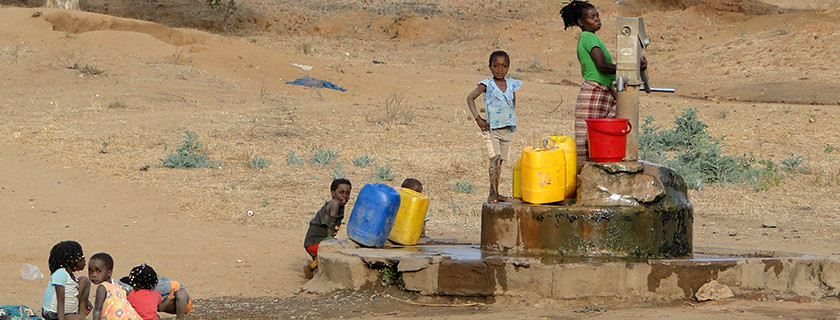Water at the top of global threats list
Nemus’ path as a company is closely connected to water. Water resources were, since its founding in 1997, the area of expertise of the company, which began as an environmental consultant.
The company grew and its journey did not stop being crossed by water: studies of coastal areas, spatial planning of reservoirs, national and international river basins management plans and environmental impact assessments of supply systems are just a few examples of this.
In the last decade, water definitely stopped being just an environmental issue and its socio-economic component assumed greater relevance, thus making water a complex issue which requires specialized and integrated analyses. Nemus accompanied this change of paradigm and the proof of this are the varous international “Environmental and Social Impact Assessments” it has conducted as well as the currently in progress New River Basin Plan of the San Francisco River (Brazil) where there are numerous problems related to the water crisis.
As the socio-economic component became increasingly important in environmental studies, so did water issues became an increasingly devastating social problem that has now reached the official classification of ‘biggest threat in the world’.
Original article from IWA Publishing:
The World Economic Forum’s Global Risks 2015 report has for the first time placed water crises at the top of the list of biggest global threats in terms of their potential impact.
Water crises have also been re-categorised as a societal rather than an environmental risk in this year’s report. Carl Ganter, from WEF’s global agenda council on water, pointed out that around a third of the world’s population now live in water-stressed areas.
Water crises beat the spread of infectious diseases, weapons of mass destruction and inter-state conflict to make the top of the list. The report notes that ‘past warnings of potential environmental catastrophes have begun to be borne out, yet insufficient progress has been made – as reflected in the high concerns about failure of climate-change adaptation and looming water crises in this year’s report.’
It continues: ‘These multiple cross-cutting challenges can threaten social stability, perceived to be the issue most interconnected with other risks in 2015, and additionally aggravated by the legacy of the global economic crisis in the form of strained public finances and persistent unemployment.’
Global water requirements will be pushed beyond sustainable water supplies by 40% by 2030, the report warns. The International Energy Agency also predicts water consumption to meet the needs of energy generation and production will increase by 85% by 2035.
Climate change will also profoundly affect water security in the coming years, the report says. The interconnected risks of water, food, energy and climate change will be one of the overarching megatrends to shape the world in 2030, Ganter says.
By Lis Stedman (original article: link )
The International Water Association (IWA) is a self-governing non-profit organization which serves as a worldwide network for water experts and professionals and to promote advancing standards and best practices in sustainable water management. IWA Publishing, the wholly owned subsidiary of the International Water Association, provides periodical information on all aspects of water, wastewater and related environmental fields. The latest edition of IWA’s World Water Congress & Exhibition took place in Lisbon, Portugal (September 2014), bringing together more than 5.000 leading water experts and industry professionals from 97 countries.

